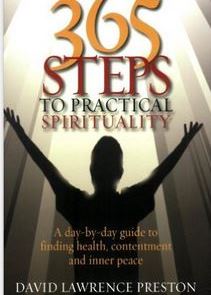Beliefs are collections of thoughts, or ideas which we hold to be true. All beliefs are learned, mostly in childhood. Most of our beliefs come from our elders. Nothing we believe (as opposed to know) is ever certain.
Millions have died for beliefs that most of us no longer accept, for example:
- People were once tortured and killed for challenging the conventional belief that the world was flat.
- The Romans believed it was perfectly acceptable to watch their fellow humans being torn apart by wild animals as a form of entertainment.
- In South and Central America, it was once believed that the gods looked favourably on sacrifices which could include tearing out the hearts of live human beings.
- In Europe in the Middle Ages, it was considered God’s will to burn and drown women who showed signs of heightened intuition.
- In the so-called ‘Age of Reason’ (17th and 18th Centuries), white Europeans thought it right and proper to buy and sell their African brothers and transport them as cargo thousands of miles into slavery.
Having adopted a belief, we take it for granted. We make the ‘facts’ fit the belief and ignore any evidence that doesn’t support it. That’s why unquestioned beliefs are shaky foundations for living.
Three types of belief
There are three main types of belief:
- Beliefs to which we subscribe in public. We may not truly believe them all, but go along with them to impress, avoid upsetting others or creating a bad impression. We’re normally aware which of our beliefs fall into this category.
- Beliefs we tell ourselves in private, which may differ from what we believe in front of others. We may not be aware of some of these since it is possible to lie to ourselves.
- Beliefs which are so deeply ingrained we don’t even think about them. We may not even be aware that they are just beliefs. They affect most of what we do whether we’re thinking of them or not.
Self aware people are fully conscious of which beliefs fall into which category and are able to identify negative and self-limiting beliefs and work with them. Sometimes a therapist is needed to bring dysfunctional beliefs to the surface and resolve them.
Attitude
When a belief is expressed repeatedly with emotion, it becomes an attitude. People with a positive attitude see the world differently; they enjoy the best life has to offer, not because more good things come their way, but because they see the good in whatever comes their way. They also create better circumstances for themselves.
How do you feel when you approach a situation with a positive attitude compared with when you approach it from a negative point of view? As long as we have the ability to think for ourselves, we can choose our attitude. We can establish causes intended to bring specific results. This is how we co-create, with universal forces, our circumstances and experiences in life.
Power of Beliefs
That’s how powerful beliefs are. They define who we think we are, what we think of others and how we think the world works. And yet nothing we believe is ever certain, prompting the philosopher Bertrand Russell to write, ‘I would never die for my beliefs because I might be wrong.’
©David Lawrence Preston, 10.11.2016
Follow me on Facebook and Twitter @David_L_Preston


Leave a Reply